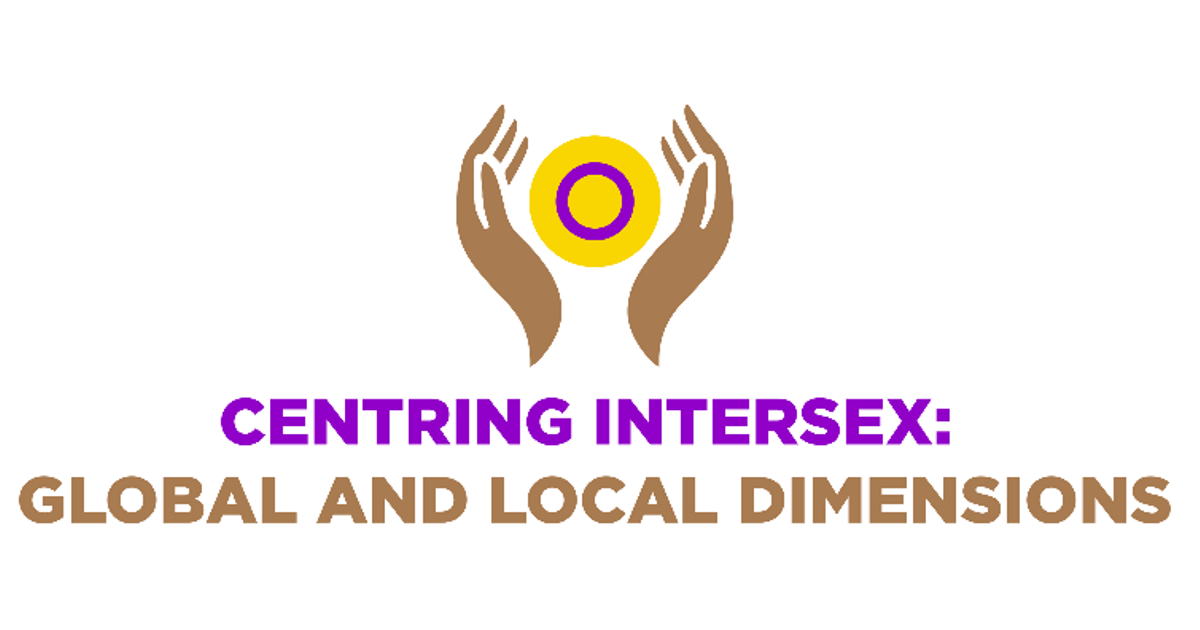Selected Papers from Centring Intersex: Global and Local Dimensions—International Conference
A special issue of Social Sciences (ISSN 2076-0760). This special issue belongs to the section "Gender Studies".
Deadline for manuscript submissions: 1 June 2024 | Viewed by 6263

Special Issue Editors
Interests: transgender; sexuality and gender identity; intersex equality and diversity; citizenship; global south; intersectionality; lesbian, gay and bisexual; human rights
Interests: human rights law; medical law; law and gender theory and feminist jurisprudence
Interests: transgender and transgender research
Interests: intersex; gender
Interests: intersex; sexuality
Interests: queer theory; medical humanities; intersex
Special Issue Information
Dear Colleagues,
We are delighted to open a call for abstract submissions for our Special Issue about the global and local dimensions of intersex issues and variations of sex characteristics.
Intersex people have contributed to remarkable changes over the past 30 years, from near silence on the topic of intersex to the current era of intersex activism, advocacy and scholarship. This global increase in the visibility and recognition of intersex issues enables the current Special Issue. While we look forward to receiving submissions that celebrate the work of intersex people and allies, we also acknowledge the significant challenges faced by intersex people globally. We anticipate that these challenges will also be the focus for some submissions.
Intersex people can face social erasure and discrimination at any stage of life, from birth to old age. Babies who are born with noticeable intersex characteristics are usually operated on or subjected to other non-consensual medical treatments during infancy, early childhood or adolescence. There has been a limited implementation of the Council of Europe Resolutions and the United Nation recommendations to stop these harmful non-consensual and unnecessary medical interventions on minors. Other key issues for intersex people and their families include a lack of inclusion in anti-discrimination legislation, bullying and erasure in schools (for example an absence of representation in school curricula) and high levels of direct discrimination and harassment in public places. Knowledge about the reasons for the lack of implementation of international human rights directives and a better understanding of intersex people’s needs regarding appropriate healthcare and related policy and practice reform are needed. This Special Issue will provide a forum for knowledge generation and networking in these areas.
Intersex people are sometimes also trans. When an intersex baby is assigned to a gender they then cannot identify with, they may decide later to live in a different gender. While many intersex people identify as male or female, some identify as non-binary. Key issues may be shared, such as the importance of bodily autonomy and legal rights, but the ways these apply to intersex people and non-intersex trans people vary. The Special Issue will facilitate alliance building and the recognition of diversities amongst intersex people and others.
Whilst there is a considerable amount of research about intersex issues, much of this is in the Global North. The Special Issue will adopt an international approach, foregrounding voices from the Global South as well as the North. It will bring in dimensions associated with postcoloniality, both in interrogating the historical construction of intersex bodies and their medicalisation in the Global North, and in addressing issues concerning intersex people and people with variations of sex characteristics in the Global South. In this way, it aims to shift the field of intersex studies forwards, whilst also complementing existing activist and scholarly networks that are international and/or based in the Global South.
The virtual conference ‘Centring Intersex Issues: Global and local dimensions’ occurred on 20‒23 February 2023.
In collaboration with Social Sciences, the presenters of papers at the conference are now invited to submit abstracts for follow-up articles extending the presented research in this dedicated Special Issue. Submissions from other authors are also welcome.
All abstract submissions will be independently assessed by two members of the Special Issue editorial board and those selected will then be invited to provide a full paper for submission to the journal, after which it will go through standard journal review processes.
We particularly welcome contributions from regions of the world that are underrepresented in the field, papers using postcolonial analysis, and those whose author/s have lived experience of being intersex, as all these are underrepresented within the field at present. The journal is generously waiving publication fees for papers accepted for the Special Edition.
Please submit your proposals and any questions to [email protected] by 30 April. First drafts are due on 30 November 2023 ([email protected]). Papers with an acceptance notification will be due on 1 June 2024.
Prof. Dr. Surya Monro
Dr. Tanya Ni Mhuirthile
Dr. Amets Suess Schwend
Dr. Fae Garland
Dr. Daniela Crocetti
Dr. David Andrew Griffiths
Prof. Dr. Katrina Roen
Guest Editors
Manuscript Submission Information
Manuscripts should be submitted online at www.mdpi.com by registering and logging in to this website. Once you are registered, click here to go to the submission form. Manuscripts can be submitted until the deadline. All submissions that pass pre-check are peer-reviewed. Accepted papers will be published continuously in the journal (as soon as accepted) and will be listed together on the special issue website. Research articles, review articles as well as short communications are invited. For planned papers, a title and short abstract (about 100 words) can be sent to the Editorial Office for announcement on this website.
Submitted manuscripts should not have been published previously, nor be under consideration for publication elsewhere (except conference proceedings papers). All manuscripts are thoroughly refereed through a double-blind peer-review process. A guide for authors and other relevant information for submission of manuscripts is available on the Instructions for Authors page. Social Sciences is an international peer-reviewed open access monthly journal published by MDPI.
Please visit the Instructions for Authors page before submitting a manuscript. The Article Processing Charge (APC) for publication in this open access journal is 1800 CHF (Swiss Francs). Submitted papers should be well formatted and use good English. Authors may use MDPI's English editing service prior to publication or during author revisions.





